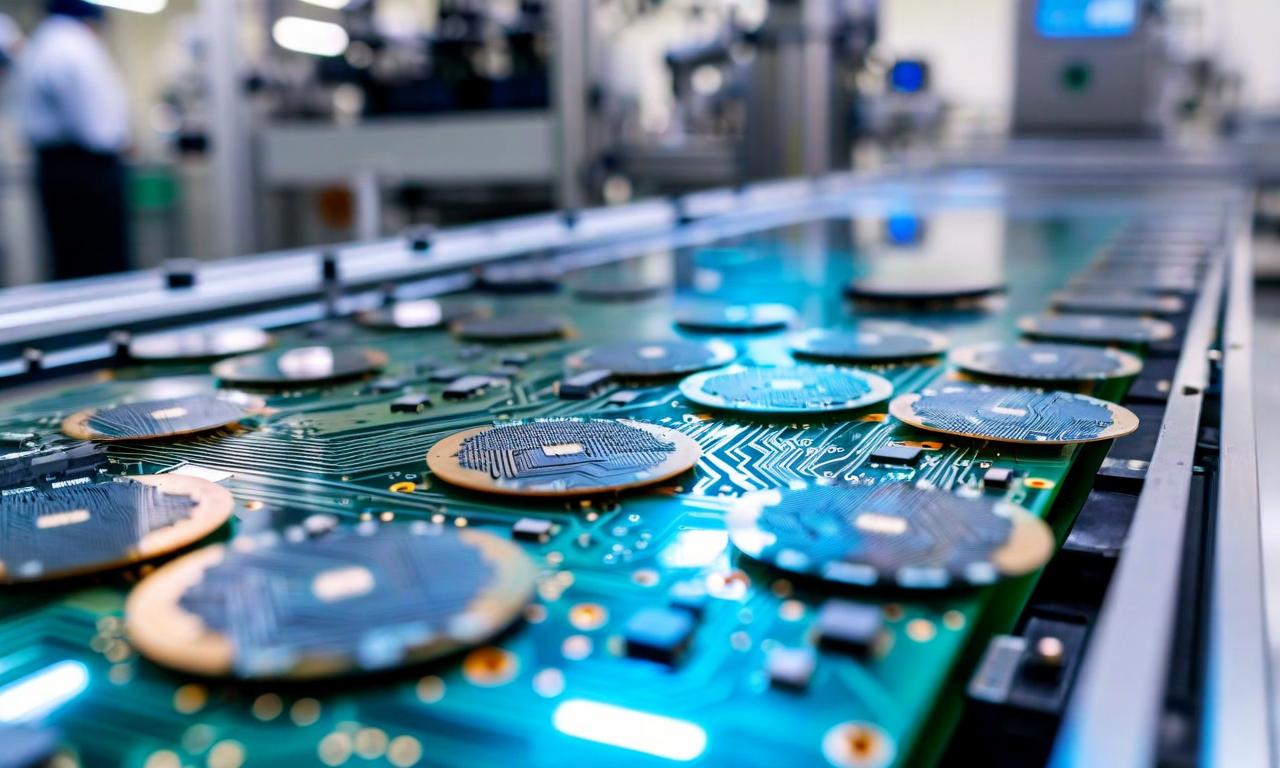US Revokes Tech Waivers for Samsung and SK Hynix China Operations
The US Commerce Department has revoked waivers allowing Samsung Electronics and SK Hynix to use US technologies in their Chinese chipmaking facilities without individual licenses. The companies now have a 120-day period to seek new licenses. The department will not grant licenses for capacity expansion or technology upgrades at Chinese facilities. South Korea's trade ministry aims to minimize business disruption, citing the importance of these operations for global semiconductor supply chain stability.

*this image is generated using AI for illustrative purposes only.
The US Commerce Department has taken a significant step that could impact the operations of two major South Korean chipmakers in China. The department has revoked waivers that allowed Samsung Electronics and SK Hynix to use US technologies in their Chinese chipmaking facilities without applying for licenses each time.
Waiver Revocation Details
The validated-end user (VEU) waivers, originally granted in 2023, provided indefinite exemptions from restrictions on shipping advanced chipmaking equipment to China. With this revocation, both companies now face a 120-day period before the waiver expires. During this time, they can seek new licenses to continue their operations in China.
Implications for Chipmakers
This decision could have substantial implications for both Samsung Electronics and SK Hynix, as they rely heavily on their Chinese facilities for memory chip production. These chips are crucial components in smartphones and various consumer electronics.
The Commerce Department has stated that it will not grant licenses for capacity expansion or technology upgrades at Chinese facilities, potentially limiting the companies' ability to enhance their operations in China.
Global Supply Chain Concerns
South Korea's trade ministry has expressed its intention to work towards minimizing business disruption. The ministry emphasized the importance of ensuring smooth operations for these chipmakers, citing their significance in maintaining stability in the global semiconductor supply chain.
Recent US-South Korea Trade Discussions
This development follows recent discussions between US and South Korean leaders. During these talks, they agreed to implement 15% tariffs on South Korean goods, a reduction from the previously threatened 25%.
Looking Ahead
As the 120-day period unfolds, the tech industry will be watching closely to see how Samsung Electronics and SK Hynix navigate these new restrictions and what impact this might have on the global chip supply. The situation underscores the complex interplay between geopolitics, trade policies, and the semiconductor industry.
























